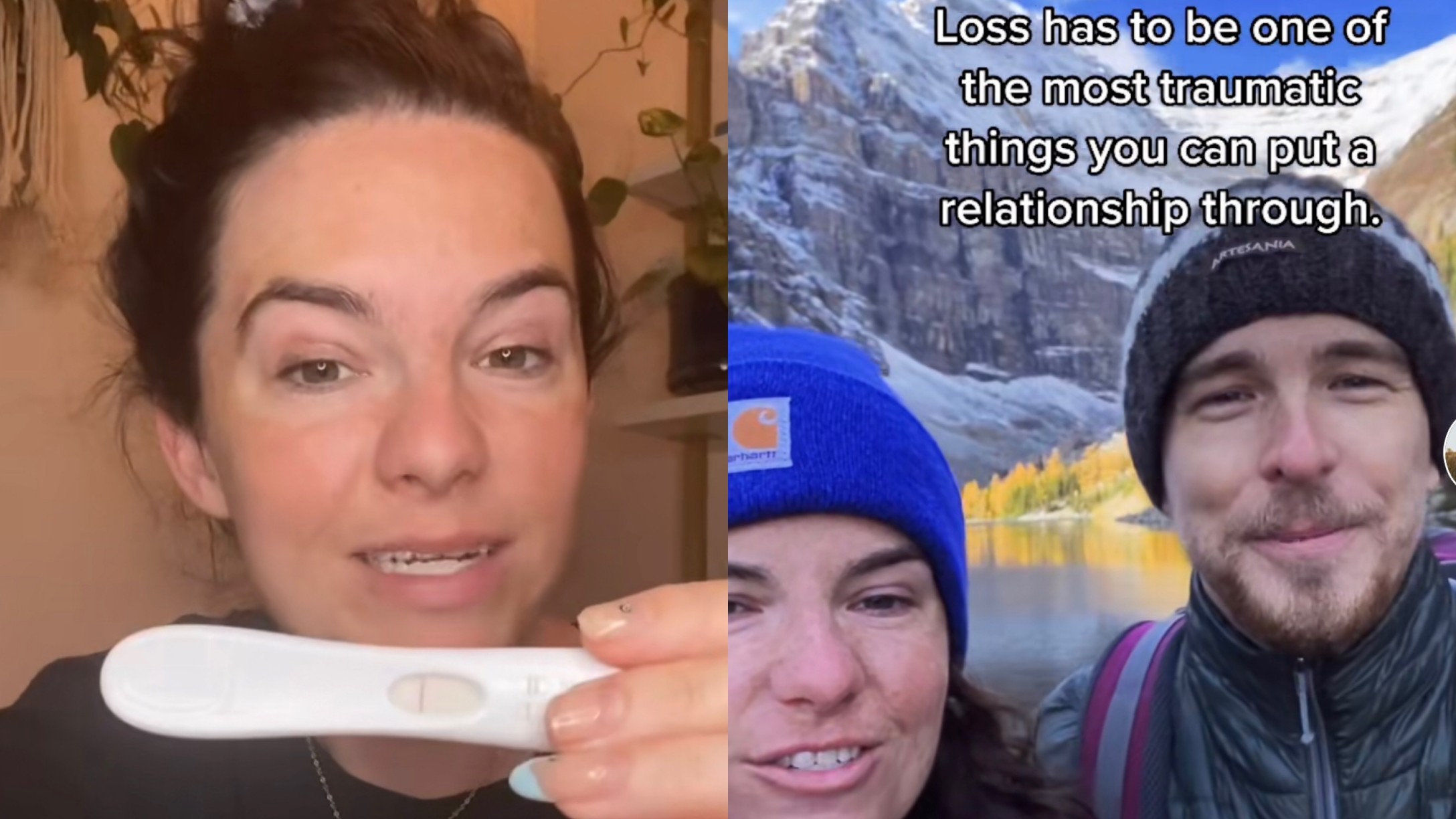
Nicole Tabak, like many others during the COVID-19 pandemic, was forced to stay home due to the mandatory lockdown orders that were in effect. She and her husband thought it was the perfect time to grow their family by having a baby. But Nicole did not realize the hardships she would face in trying to have a baby.
Nicole recently shared her infertility story in an op-ed for Insider, revealing that her first pregnancy ended in miscarriage in November 2021, when hospitals were still under COVID-19 restrictions, and little in-person support options were available to her and her husband. Nicole believes sharing her story might shed light on the unfortunate situation many women continue to face while trying to have a baby, and show them that sometimes, help can be found in unexpected places.
The couple spent thousands of dollars on medical bills and tests.
Nicole says she and her husband have spent thousands of dollars for medical bills and tests, trying to figure out what may have caused that miscarriage.
“We’ve spent almost three years trying to have a baby with nothing to show for it but thousands of dollars in medical bills, hundreds of pregnancy and ovulation tests, one medicated IUI (intrauterine insemination) procedure, and a whole lot of emotional trauma,” Nicole said.
“Throughout our journey, we’ve endured three pregnancy losses — two chemical pregnancies (miscarriage within the first 5 weeks) and that aforementioned first-trimester miscarriage at 10 weeks.”
Doctors could not figure out the cause after the tests appeared normal.
Nicole explained that she and her husband have undergone several tests that came back normal. But they still haven’t figured out why they’re having difficulties having a child. One day, the two were at a local fertility clinic when a physician diagnosed her condition as an “unexplained infertility.”
“Unexplained infertility is a diagnosis given when none of the traditional infertility diagnoses (such as PCOS, endometriosis, male factor infertility, or thyroid imbalances) are present,” Nicole explained.
While unexplained infertility is an actual diagnosis, doctors believe it’s a medical condition that cannot be explained. Nicole and her husband were stressed from infertility and pregnancy issues while navigating a global pandemic. The couple found ways to cope with the troubling situation: Nicole started using social media as her safe haven.
Nicole established a relationship with another woman who had problems conceiving.
Sarah Johnson and her husband, Cody, have been trying to have a baby since December 2020. The couple’s infertility issues made them internet famous with a growing audience on TikTok and Instagram. Sarah told Nicole that she and Cody experienced multiple pregnancy losses and had a diminished ovarian reserve diagnosis, meaning her Antimüllerian hormone is greater than 1 ng/ml.
“I didn’t post [our first video] to be anything or for it to reach anyone,” Sarah told Nicole. “I was almost kind of video journaling, and then all these comments flew in of people who had similar struggles or could resonate with it in some way.”
She added, “We started trying and said, ‘This will happen when it’s meant to be, and we’re not going to be crazy about this. We’re just going to live life.’ Then we looked up and all of a sudden it had been a year and nothing had happened.”
For Sarah, and other women, discussing infertility on TikTok has turned into a career.
Sarah’s popularity on social media created relationships with other women who were going through infertility issues as well. TikToker Caitlyn O’Neil, has amassed more than 600K followers on the video sharing platform. She considers her 6-year-old daughter a “miracle” after giving birth to her while diagnosed with unexplained infertility.
“I never in a million years expected that half a million people would care to know when I’m ovulating, but here we are and I make a living off of this,” Caitlyn said.
Though these women may have experienced multiple pregnancy losses, they found a way use their voices on social media to raise awareness about unexplained infertility and what to do after being diagnosed, not only fostering connections with one another, but also with hundreds of thousands of other people.




